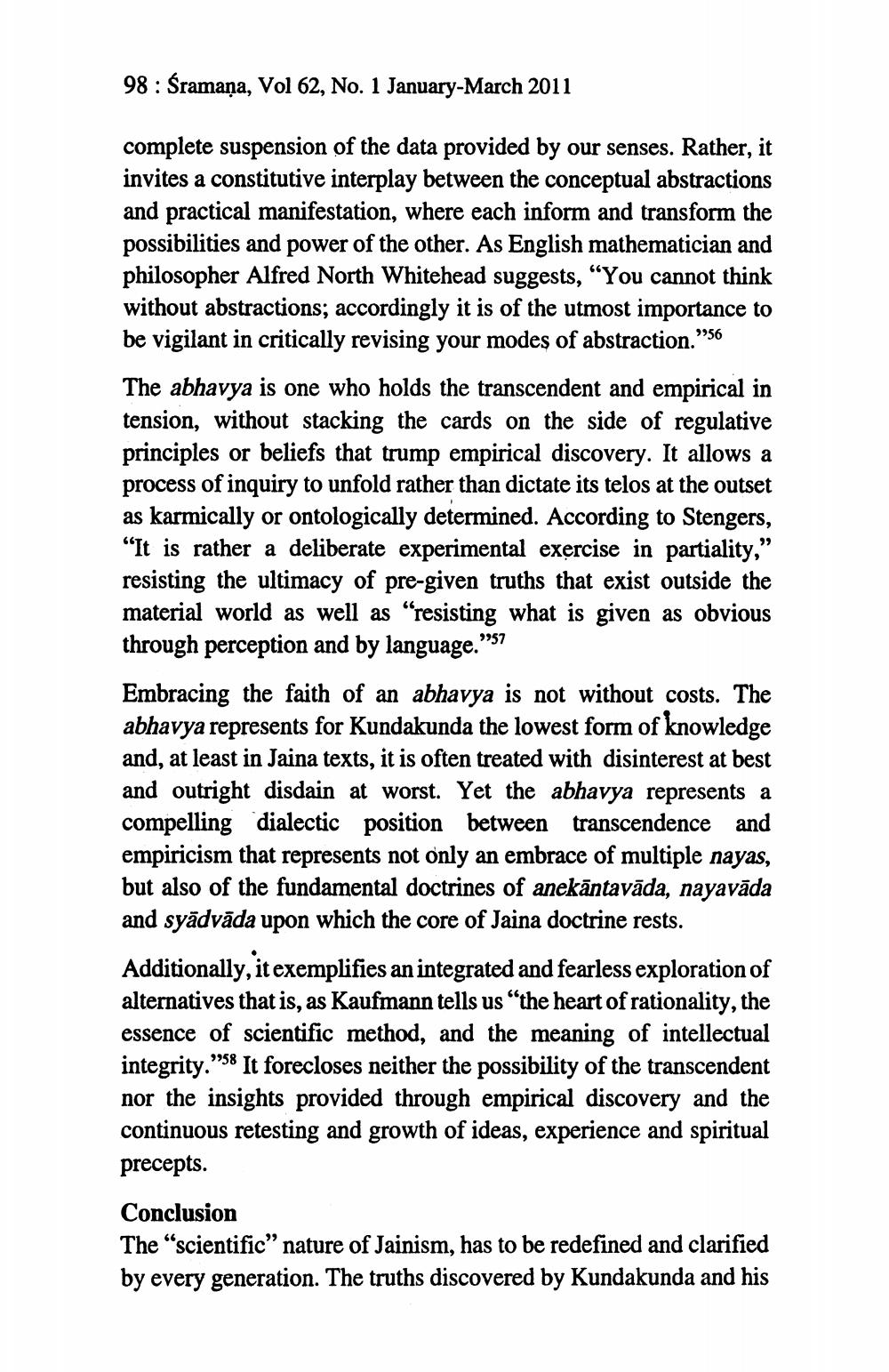________________
98: Śramana, Vol 62, No. 1 January-March 2011
complete suspension of the data provided by our senses. Rather, it invites a constitutive interplay between the conceptual abstractions and practical manifestation, where each inform and transform the possibilities and power of the other. As English mathematician and philosopher Alfred North Whitehead suggests, "You cannot think without abstractions; accordingly it is of the utmost importance to be vigilant in critically revising your modes of abstraction."""
The abhavya is one who holds the transcendent and empirical in tension, without stacking the cards on the side of regulative principles or beliefs that trump empirical discovery. It allows a process of inquiry to unfold rather than dictate its telos at the outset as karmically or ontologically determined. According to Stengers, "It is rather a deliberate experimental exercise in partiality," resisting the ultimacy of pre-given truths that exist outside the material world as well as "resisting what is given as obvious through perception and by language."
9957
Embracing the faith of an abhavya is not without costs. The abhavya represents for Kundakunda the lowest form of knowledge and, at least in Jaina texts, it is often treated with disinterest at best and outright disdain at worst. Yet the abhavya represents a compelling dialectic position between transcendence and empiricism that represents not only an embrace of multiple nayas, but also of the fundamental doctrines of anekantavāda, nayavāda and syādvāda upon which the core of Jaina doctrine rests.
Additionally, it exemplifies an integrated and fearless exploration of alternatives that is, as Kaufmann tells us "the heart of rationality, the essence of scientific method, and the meaning of intellectual integrity. ."58 It forecloses neither the possibility of the transcendent nor the insights provided through empirical discovery and the continuous retesting and growth of ideas, experience and spiritual precepts.
Conclusion
The "scientific" nature of Jainism, has to be redefined and clarified by every generation. The truths discovered by Kundakunda and his




